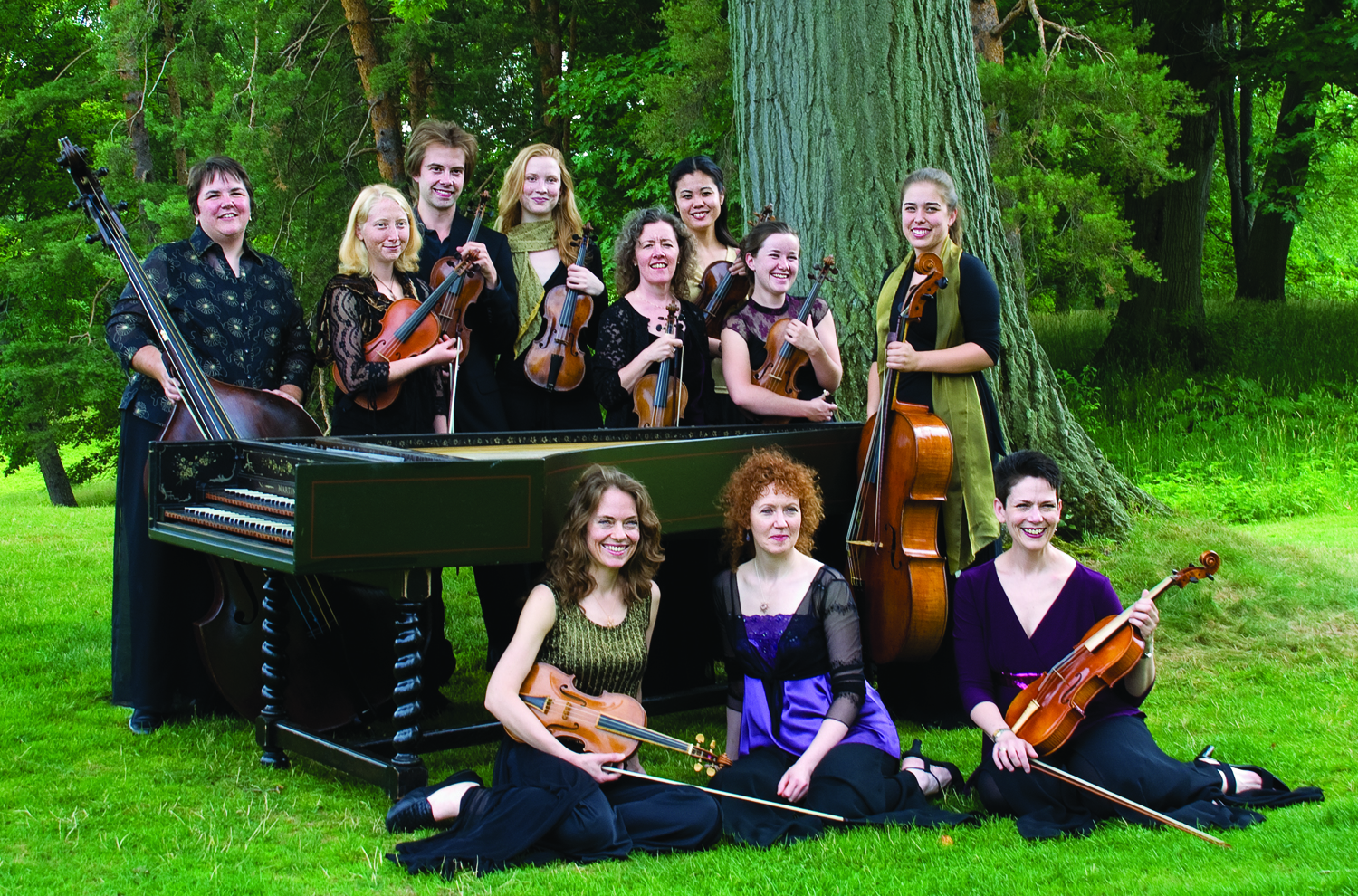by Nicholas Jones
Handel’s Messiah
This year’s performance by Apollo’s Fire shook off that preconception about Messiah. Jeannette Sorrell led a highly dramatic rendering of the piece that made the most of the theatrical basis of the music.]
In the very first recitative, the expressive tenor Karim Sulayman (singing, as did all the soloists, from memory) embodied the contrast between the salvation that Messiah was to bring—”Comfort ye,” he sang, with heart-piercing compassion—and the world’s “iniquity” that is in such need of salvation.
“Why do the nations so furiously rage together?” asked baritone Jeffrey Strauss. In his hands, it became a real question, not merely rhetorical. If Messiah has come, why do we still have war? Theatrically, the question was posed both to himself, like a Hamlet inquiring into the nature of being, and to the audience: why do we continue to “imagine a vain thing”?
Messiah takes us through a great and complicated plot—the prophecies and birth of Jesus, his torment and resurrection, the growth of faith and evangelism, and the promised “victory over death” for the faithful. In the Apollo’s Fire performance, that plot was gripping at almost every moment.
“He was despised and rejected,” sang mezzo-soprano Amanda Crider. Her crisp diction made the torments of the crucifixion seem real, with unforgettable delivery of the “shame and spitting” that Jesus endured in the Passion. But, like the other soloists, she sang Handel’s lyrical melodies as though they were written to delight as well as instruct his theatrical audience—and, in her renditions, with melodic line and tasteful ornamentation, they did.
Handel gave his soprano the moments of greatest sweetness—the Christmas story of the shepherds and the angels and the song of faith, “I know that my redeemer liveth.” Meredith Hall’s clear and focused voice, coupled with her passionate delivery, were as close to heaven as I might imagine achieving in a concert hall or a church.
Following hints in Handel’s score, Sorrell orchestrated several arias as chamber pieces with singer and solo violin, emphasizing the inwardness of faith and the intimacy of its expression. Violinists Johanna Novom and Olivier Brault beautifully complemented the soloists in these.
Apollo’s Singers were as much a part of the theatricality as the soloists: their diction brought the text across, and their articulation made Handel’s complex fugal passages clear and expressive.
The engineered chaos of “All we, like sheep, have gone astray” enacted the stubborn individuality of errant human life with jaunty virtuosity through devilishly difficult vocal runs. That is, until the “playwright’s” surprise moment, when the chorus winds up its mad fugue on a C major chord (a happy moment, we might think)—only to plunge us into a lament based on slow descending lines in the dark key of F minor, descents that remind us again of our “iniquity.”
The orchestra was fully a part of the drama. The upper strings (despite some early struggles with tuning) played Handel’s daunting lines with energy and passion. Two oboes (Debra Nagy and Kathryn Montoya) added to the color of the upper lines. The continuo section made drama from the intricate running bass lines (René Schiffer and Steuart Pinchombe, cello; Sue Yelanjian, bass; Stephanie Corwin, bassoon; Peter Bennett, organ and harpsichord; and Jeannette Sorrell playing harpsichord for the solo sections). In the big moments, the high trumpets (Josh Cohen and Joelle Monroe) and drums (Michael Bassett) provided excitement. Cohen’s solo in “The trumpet will sound,” played from memory, was thrilling.
Sunday’s venue, the large St. Christopher’s Catholic Church in Rocky River, was nearly full. It is gratifying to see the crowds turn out for this performance, but something needs to be done about getting them to their seats in a timely manner. The opening of the concert was delayed by a quarter of an hour because of limited ingress and slow ticket-taking.
Like any great theatrical performance, this Messiah startled us again and again with its sudden shifts of mood: now gentleness, now majesty, now excitement, and finally, peace. The final “Amen” left us in a contemplative mood, quietly and inwardly, as if the chorus were reflecting on the meaning of the story that had just been told. It takes daring to end a piece so quietly, in Milton’s words, with “calm of mind, all passion spent.”
Published on ClevelandClassical.com December 18, 2012
Click here for a printable version of this article.


